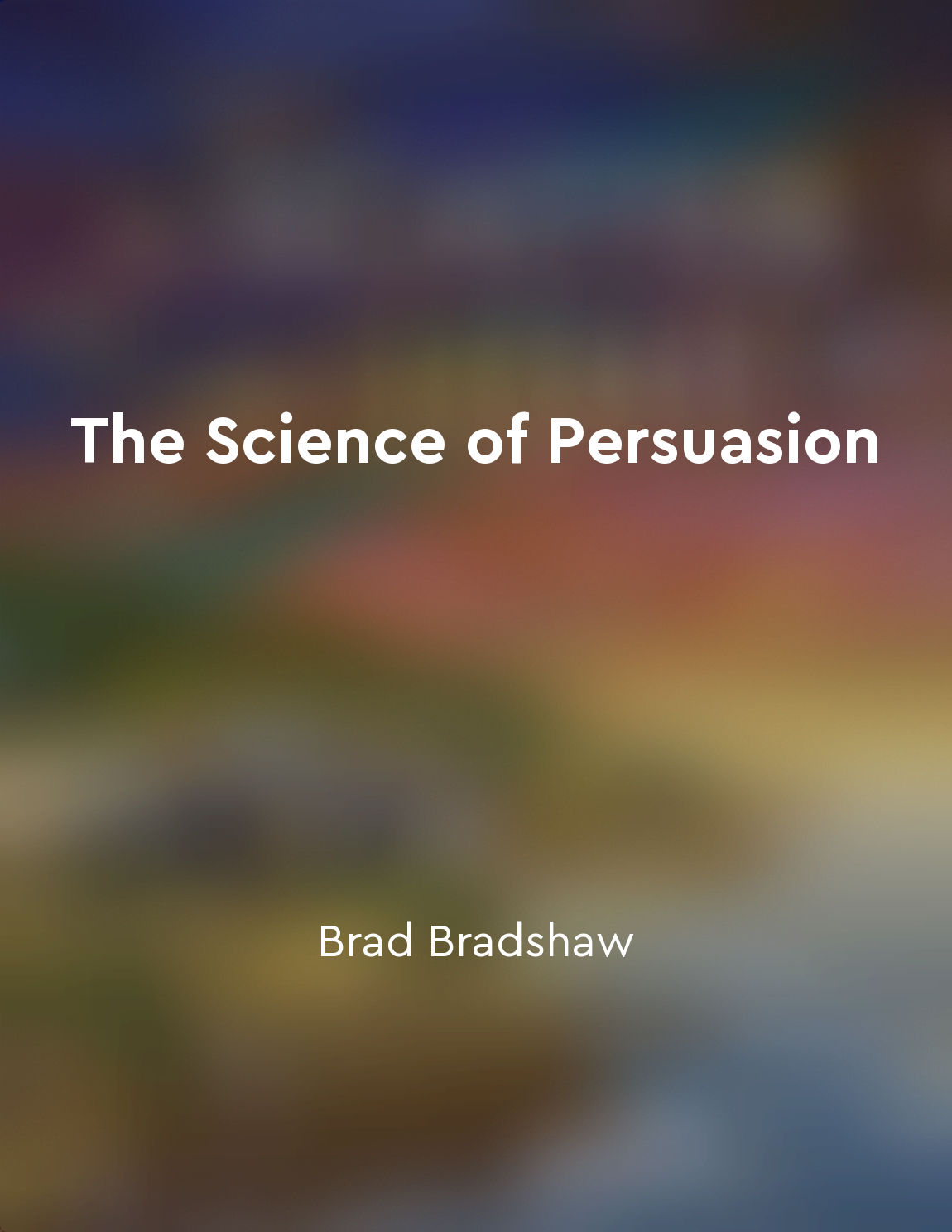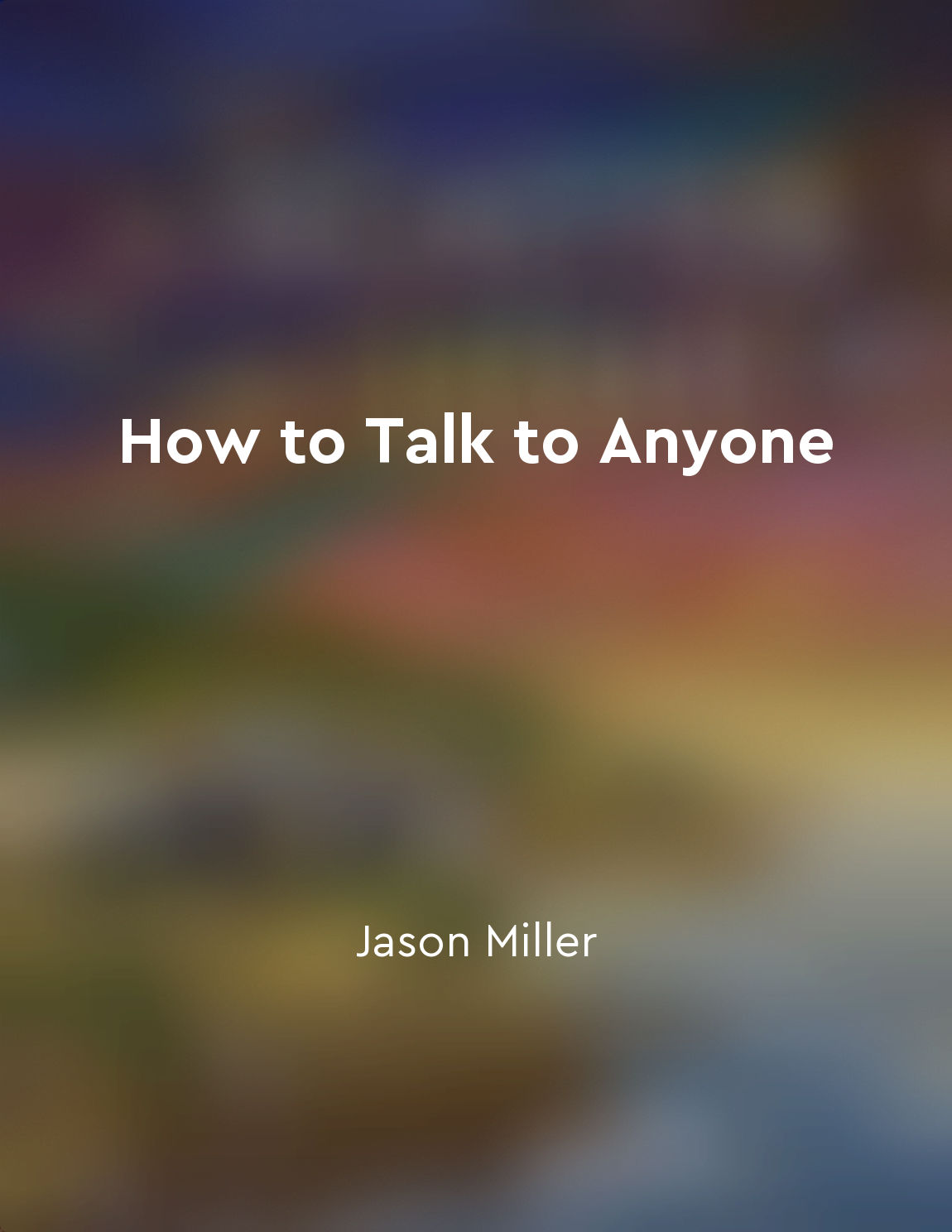Develop effective communication skills from "summary" of Am I Making Myself Clear? by Terry Felber
Effective communication involves more than just speaking clearly and articulating your thoughts. It is about truly connecting with others, understanding their perspective, and conveying your message in a way that resonates with them. Developing effective communication skills is a lifelong process that requires self-awareness, empathy, and continuous practice. One key aspect of effective communication is active listening. This means giving your full attention to the speaker, not just waiting for your turn to talk. When you listen actively, you show respect for the other person and demonstrate that you value their thoughts and opinions. This can help build trust and rapport, making it easier to communicate effectively. Another important component of effective communication is being able to express yourself clearly and concisely. This involves organizing your thoughts logically, using simple and straightforward language, and avoiding jargon or technical terms that may confuse the listener. By being clear in your communication, you can ensure that your message is understood and avoid misunderstandings. Nonverbal communication also plays a crucial role in effective communication. Your body language, facial expressions, and tone of voice can convey as much, if not more, than your words. Being aware of your nonverbal cues and using them to support your message can enhance your communication and help you connect with others on a deeper level. In addition to verbal and nonverbal communication, the ability to adapt your communication style to different situations and audiences is essential. Not everyone communicates in the same way, so being flexible and adjusting your approach can help you connect with a diverse range of people. Whether you are speaking to a colleague, a client, or a friend, being able to tailor your communication style can make a significant difference in how your message is received.- Developing effective communication skills is about building relationships, fostering understanding, and creating meaningful connections with others. By honing your listening, speaking, and nonverbal communication abilities, you can become a more effective communicator and make yourself clear in any situation.
Similar Posts
Lifelong learning philosophy
The idea of lifelong learning philosophy is deeply rooted in the belief that learning is not confined to a specific period of l...
Practice gratitude daily for a positive mindset
Every day, we have the power to shape our mindset by practicing gratitude. This simple yet profound act can transform our outlo...
Celebrate small victories along the way
As we journey towards our goals, it is important to acknowledge and appreciate the small victories that we achieve along the wa...

Creating a sense of urgency can increase persuasion
Creating a sense of urgency is a powerful tool in the world of persuasion. When individuals feel a time constraint or a limited...
Foster a culture of collaboration and inclusivity
To create an environment of collaboration and inclusivity within an organization, it is essential to establish a culture that v...
Embrace uncertainty
Uncertainty is a part of life. It is the thing that keeps us on our toes, that makes each moment unique and unpredictable. Embr...
Acepta tus imperfecciones y sigue adelante
One key aspect of personal growth is learning to accept our imperfections. It is easy to get caught up in striving for perfecti...
Think winwin
When we think win-win, we are seeking mutual benefit in all interactions. This mindset is based on the belief that there is ple...

Seek common ground to connect with others
When it comes to connecting with others, finding common ground is key. It's like laying a foundation for a building – without i...
Challenge perfectionism
Perfectionism can be a difficult mindset to break free from. It often leads people to set impossibly high standards for themsel...

